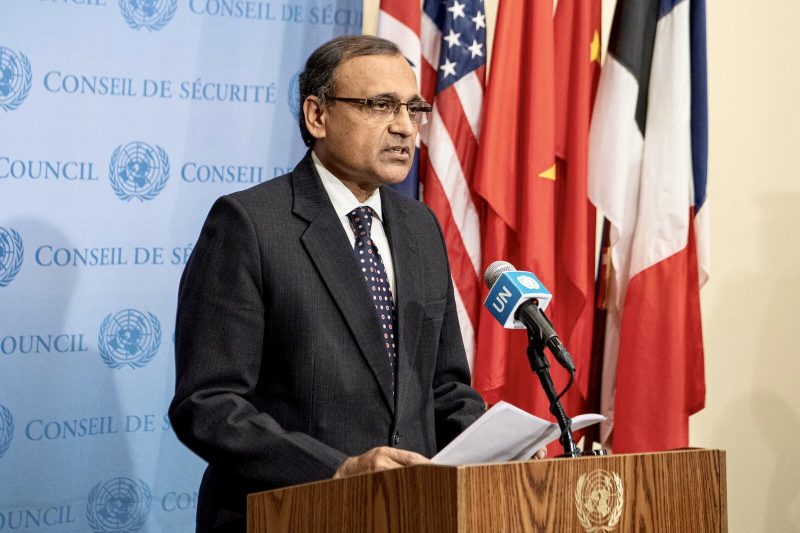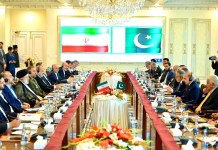In a ‘message’ to Pakistan, India on Friday announced it will chair three crucial UN Security Council (UNSC) committees, including the one on Taliban sanctions in 2021-22. The move assumes significance as India officially kicks off its two-year tenure as a non-permanent member of the UNSC for the eighth time.
Pakistan Looks To Deepen Ties With Bangladesh; Removes All Visa Restrictions For Bangladeshis
India’s Permanent Representative to the UN, T S Tirumurti, announced on Friday in a video message taking a “tacit swipe” at Pakistan supporting cross-border terrorism, Hindustan Times reported. In the message, Tirumurti announced the three committees that India will chair: Taliban Sanctions Committee, Counter-Terrorism Committee (CTC), and the Libyan Sanctions Committee.
Happy to announce that ?? #India will be chairing 3 key subsidiary bodies of @UN #SecurityCouncil during #IndiainUNSC (2021-22):
➡️ Taliban sanctions committee
➡️ #CounterTerrorism committee (for 2022)
➡️ #Libya sanctions committee @MEAIndia #UNSCMy message ⤵️ pic.twitter.com/QJgBnmDer5
— PR UN Tirumurti (@ambtstirumurti) January 8, 2021
“Our chairing this committee at this juncture will help keep the focus on the presence of terrorists and their sponsors threatening the peace process in Afghanistan,” Tirumurti said without naming Pakistan. “It has been our view that peace process and violence cannot go hand in hand.”
Tirumurti stated that the Taliban sanctions committee, also called the 1988 sanctions committee, has always been a “high priority for India.” He added that India would be a chair of the Counter-Terrorism committee in the year which will coincide with its 75th anniversary as an independent nation.

“The chairing of this committee has special resonance of India, which has not only been in the forefront of fighting terrorism, especially cross-border terrorism but has also been one of its biggest victims,” he noted.
The Counter-Terrorism Committee was formed in the wake of the 9/11 terror attacks in the United States in 2001. India has chaired this committee in 2011-12.
Pakistan has been actively involved in the Afghanistan peace process brokered by the United States. Meanwhile, Pakistan has been accused of sheltering terrorists hiding from Afghan forces and sending fighters to support the Taliban. A report by the United Nations Security Council (UNSC) has said that around 6,500 Pakistani terrorists are operating in Afghanistan, most of them belonging to the Tehrik-e-Taliban Pakistan (TTP).
A Taliban delegation lead by top political leader Mullah Abdul Ghani Baradar visited Pakistan last month to meet Prime Minister Imran Khan and the foreign minister. Pakistan said the visit was “to facilitate the Afghan peace process to achieve a peaceful, stable, united, independent, sovereign and prosperous Afghanistan.”
Mulla Fazel Akhund-TB Doha office & negotiations team member is visiting suiciders’ unit in Pakistan. He is doing this just after meeting with @ImranKhanPTI. What message TB want to convey by boosting up suiciders during peace negotiations? pic.twitter.com/5wf0HcB6ty
— Najeeb Nangyal (@NajeebNangyal) December 22, 2020
Meanwhile, several videos showed Taliban leaders visiting terror camps and meeting their followers during their visit to Pakistan. Afghan Foreign Ministry took notice and issued a statement expressing their “deepest regret and concern” over the videos.
“The overt presence & activities of Afghan insurgent elements and their leaders in Pakistani territory clearly violate Afghanistan’s national sovereignty and continue to cause crisis and instability in the region, posing a serious challenge to achieving sustainable peace in Afghanistan,” it said.
Full statement by Afghan foreign ministry on Taliban accepting its presence in Pakistan. Expresses "deepest regret" & ask Pakistan to "not allow its territory to be used by insurgents" pic.twitter.com/R3EBTEDh0b
— Sidhant Sibal (@sidhant) December 25, 2020
The Taliban Sanctions committee “designates individuals and entities for participating in the financing, planning, facilitating, preparing or perpetrating of acts; supplying, selling or transferring arms; recruiting and supporting acts or activities of groups, undertakings, and entities associated with the Taliban,” said a CNBC report.
The Libya Sanctions Committee also called the 1970 sanctions committee, implements the sanctions regime including a two-way arms embargo in Libya and assets freeze, travel ban measures on the illicit export of petroleum, and others. “India will be assuming the chair of the Libya Sanctions Committee at a critical juncture when there is an international focus on Libya and on the peace process, ” said Tirumurti.
India’s role in these three committees is expected to boost its chances to get a permanent seat at the UNSC, which New Delhi has been eyeing for years.
However, China has been blocking India’s nomination. “Four out of the five permanent members of the UN Security Council have bilaterally expressed support for India’s candidature for a permanent seat at the global body,” external affairs minister S Jaishankar said in September.
The other four members include the US, the UK, France, Russia.
Follow EurAsian Times on Google News





